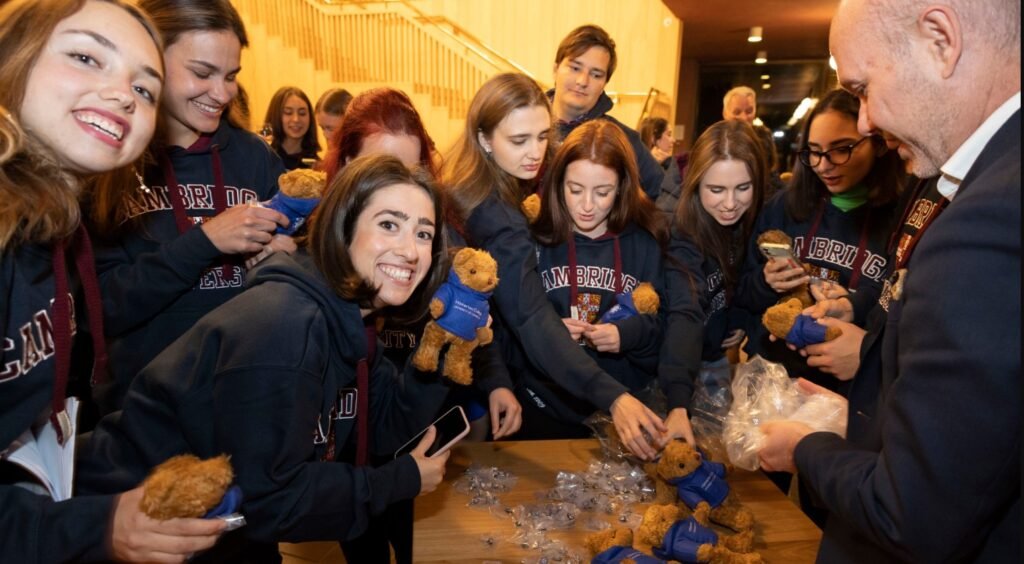Twenty-one medical students from Kharkiv, Ukraine, have arrived in the UK to continue their clinical training at the University of Cambridge. The students are from the city that has been under attack by Russian-backed rebels since 2014, and have faced many challenges and hardships in their studies. The programme, which offers seven weeks of practical training at various hospitals and clinics in Cambridge, is in its second year and aims to help the students gain more skills and experience in medicine.
The twinning partnership with Kharkiv National Medical University was initiated by Dr Paul Wilkinson, the clinical dean of the School of Clinical Medicine at Cambridge. He said that the programme was “about packing as much as possible into seven weeks” and that the students would benefit from the “world-class” medical facilities and staff in Cambridge. He also said that the programme was a way of showing solidarity and support for the Ukrainian medical community, which has been struggling to cope with the effects of the war and the Covid pandemic.

The stories of the students
The students who are participating in the programme have different backgrounds and aspirations, but they all share a common passion for medicine and a desire to help their country. Some of them have witnessed or experienced the horrors of war firsthand, and have used their medical skills to save lives and treat injuries.
One of them is Elina Sushchenko, a fifth-year medical student who was born in Donetsk, but fled to Kharkiv when her home city was seized by Russian-backed rebels. She said that she had seen two invasions in her life, and that it was emotionally hard to cope with. She said that she hoped to become a surgeon and that she needed to get more skills and experience to help rebuild her country. She said that the chance to train in Cambridge was critical for her development and that she was grateful for the opportunity.
Another student is Serhii Alkhimov, who also fled from Donetsk to Kharkiv. He spent four months living in an underground railway station with 1,000 other people, where he treated many ill people on his own. He received a medal from President Volodymyr Zelensky for his bravery and service. He said that he learned a lot from his experience, but that he also wanted to learn new methods of treatment in Cambridge. He said that he was glad to help and save lives, and that he wanted to pass on his knowledge and skills to others.
The impact of the programme
The programme has been praised by both the University of Cambridge and Kharkiv National Medical University as a valuable and meaningful exchange of knowledge and culture. The students are expected to learn from the best practices and standards of medicine in the UK, as well as to share their insights and perspectives from Ukraine. The programme also aims to foster friendship and collaboration between the two universities and countries.
A spokesperson for Kharkiv National Medical University said that the placement offered “incredible value” for the students who had mostly been relegated to online classes due to the Covid pandemic and war. They said that the students had limited access to patients for practical training in Kharkiv, which could have an impact on their future education. They said that they were very grateful for the help from Cambridge, and that they hoped that the programme would continue for many years.
The students are due to complete their placement in May 2023, after which they will return to Ukraine to finish their studies. They said that they were excited and eager to learn as much as they can in Cambridge, and that they hoped to make a positive difference in their country.
